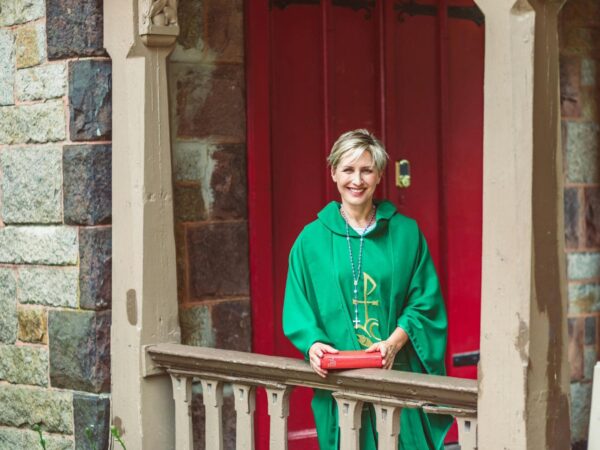Have you ever felt like the Christian faith, with its ancient stories and profound claims, sometimes struggles to find its voice in our modern Western world? It’s a pervasive feeling, isn’t it? Our culture, with its dizzying pace and endless options, presents unique and often subtle challenges for those of us trying to live out and share our faith. This is precisely where the brilliant insights of Lesslie Newbigin, a missionary who returned from India to his native Britain, become invaluable. His seminal work, “The Gospel in a Pluralist Society,” offers profound, practical lessons for contemporary discipleship and evangelism. We’re not talking about Western culture as some neutral backdrop; Newbigin helps us see it as a distinct mission field in itself, a place where the Gospel needs to be understood, lived, and proclaimed authentically. This article aims to unpack his wisdom and explore how we can apply it right here, right now.
Newbigin’s Critique of Western Culture
Lesslie Newbigin didn’t just observe Western modernity; he dissected it with the precision of a surgeon and the heart of a prophet. He argued that our culture isn’t just different; it’s built on a set of inherent assumptions and dominant narratives that often make the Christian Gospel seem unintelligible, irrelevant, or simply unbelievable to the modern Western mind. He challenged us to look beyond the surface and understand the deep currents flowing beneath, currents such as the powerful legacy of the Enlightenment, the pervasive rise of secularism, and the almost suffocating individualism that shapes many of our societal values. This critical examination provides a crucial backdrop for anyone serious about sharing their faith today.
The Enlightenment’s Legacy and Its Impact on Truth
Let’s trace it back a bit. The Enlightenment project, with its fervent emphasis on human reason, individual autonomy, and the absolute necessity of empirical verification, profoundly reshaped Western thought. It was a powerful intellectual earthquake. This seismic shift led to a widespread, almost instinctive, skepticism towards any universal truth claims, especially those rooted in ancient religious revelation. Consequently, faith became increasingly relegated to the private sphere, a personal preference, a hobby even, rather than a comprehensive truth about reality itself. The Gospel, in this new intellectual climate, often appeared as merely one subjective opinion among many in a marketplace of ideas, stripped of its authority and public relevance. Understanding this intellectual inheritance is vital for Christian mission in a post-Enlightenment world; we’re speaking a different language than our ancestors.
The Privatization of Faith and the Public Square
Newbigin keenly observed that Western culture has a peculiar habit: it often insists on relegating faith to a purely private, personal matter. It’s as if faith is fine for your living room or your church building, but it’s effectively banished from the vibrant public square of ideas, politics, and social discourse. This stands in stark contrast to the inherently public, communal, and profoundly transformative nature of the Gospel, which seeks to redeem and renew all aspects of life, not just our private thoughts. This privatization has immense practical implications for evangelism, making it incredibly difficult to articulate the Gospel’s relevance to pressing societal issues, such as justice, poverty, or environmental care. For discipleship, it challenges believers to live out their faith authentically and holistically in a world that prefers it kept quiet and neatly tucked away.
Consumerism and Individualism as Dominant Narratives
And then there are the twin titans of our age: consumerism and radical individualism. These powerful forces have become dominant, almost unquestioned narratives that shape Western identity, define our values, and fuel our aspirations. We’re constantly told to pursue personal gratification, to seek self-fulfillment, often through the endless acquisition of material goods. This relentless pursuit creates significant barriers to the communal, self-sacrificial, and outwardly focused nature of Christian life. How do you embrace a life of service and shared purpose when society champions personal autonomy and self-interest above all else? Newbigin demonstrated how these cultural narratives can subtly undermine discipleship, making it genuinely challenging for believers to embrace a life of humble service and shared purpose in a society that prioritizes “me” over “we.”

The Gospel in a Pluralist Society: Newbigin’s Framework
So, how do we respond to this cultural landscape? Lesslie Newbigin’s seminal work, “The Gospel in a Pluralist Society,” provides a visionary framework, a roadmap if you will, for how the Christian Gospel can be credibly and compellingly presented in a world bursting with diverse truth claims and competing worldviews. He calls us to move beyond defensive postures, beyond merely protecting our faith, to confidently and winsomely proclaiming it. It’s about understanding the Gospel’s inherently public nature and recognizing the Church’s indispensable role in its proclamation.
The Gospel as Public Truth
Newbigin’s profound insistence was revolutionary: the Gospel isn’t just a subjective private belief, a comforting personal preference, or a mere set of moral rules. No! He argued that it is a comprehensive public truth claim about the ultimate nature of reality itself. It offers a coherent and compelling worldview that actively challenges and integrates other narratives, providing answers to humanity’s most profound yearnings. This understanding requires Christians to move beyond simply defending their faith to boldly proclaiming it as a public truth that addresses the fundamental questions of human existence and offers a transformative vision for society. It means directly, yet graciously, confronting the prevailing secular worldview with the radical claims of Christ.
The Church as the Hermeneutic of the Gospel
This is perhaps Newbigin’s most crucial and often-cited concept: the Church, as a living, tangible community embodying the Gospel, is the primary and most credible means by which the Gospel is understood and made believable in a pluralistic world. It’s not just about eloquent words from a pulpit; it’s about a lived reality, a visible demonstration. The discussion highlights how the Church’s communal life, its unique practices, its radical love, and its unwavering commitment to justice are meant to be a visible sign and a foretaste of God’s coming kingdom. This makes the abstract claims of the Gospel concrete and compelling to a skeptical world that often values experience over argument. The Church itself, in its very being, is a “hermeneutic,” or an interpretation, of the Gospel.
Narrative and the Christian Story
Newbigin powerfully emphasized the power of the Christian narrative—that overarching biblical story stretching from creation to new creation—as a comprehensive worldview capable of making profound sense of human experience and offering ultimate meaning. It’s a grand, sweeping tale that invites participation. This grand narrative can challenge and integrate other competing narratives prevalent in a pluralistic society, providing a robust framework for understanding history, discerning human purpose, and contemplating destiny. The focus here is on how Christians can effectively articulate and embody this story, inviting others to find their place within its transformative arc, rather than relying solely on abstract propositional arguments. It’s about inviting people into a compelling drama.
Practical Applications for Contemporary Discipleship
So, how do we apply Newbigin’s profound theological insights to create concrete, actionable practices for Christians living in the complex tapestry of Western culture? This section transitions from theory to practical application, providing guidance on how disciples can embody the Gospel in their daily lives, at work, and in their relationships, becoming living, breathing witnesses to the truth they profess. It’s about living out faith in a way that is both authentic to the Gospel and compelling to those around us.
Embracing a Counter-Cultural Lifestyle
What does it mean for disciples to live a distinctive, counter-cultural lifestyle in a society often dominated by consumerism, individualism, and secular assumptions? It means making intentional choices. It involves exploring how believers can embody Gospel values in their daily decisions regarding finances (generosity over accumulation), consumption (mindfulness over excess), relationships (love over self-interest), work ethic (service over ambition), and leisure (rest over endless distraction). The focus is on intentional living that demonstrates an alternative, more fulfilling vision of human flourishing, one rooted in humility, generosity, community, and service. This offers a compelling contrast to the prevailing cultural norms without being judgmental or withdrawing from society.
Cultivating a Public Faith
It takes courage, doesn’t it, to speak about faith in a world that often prefers silence? This sub-section explores practical ways Christians can courageously articulate and live out their faith in the public square, engaging thoughtfully with societal issues, ethical dilemmas, and intellectual discourse. It’s not about being triumphalist or aggressive, nor is it about retreating into insular enclaves. The emphasis is on developing a robust, articulate faith that can engage respectfully with diverse viewpoints while confidently presenting the Christian perspective as a meaningful contribution to the common good. It’s about demonstrating that faith has something vital, something truly indispensable, to say about all of life.
Practical Applications for Contemporary Evangelism
Beyond personal discipleship, Newbigin’s work offers invaluable guidance for how the Church can effectively engage in evangelism in Western culture. This section translates his insights into concrete, actionable strategies for sharing the Gospel in a way that is both utterly faithful to its timeless message and genuinely intelligible to a pluralistic, often skeptical, audience. It’s about moving beyond outdated methods that no longer resonate, towards a more holistic, embodied, and compelling witness that speaks to the deepest longings of the human heart.
Witness Through Community
This is Newbigin’s core conviction, a powerful truth: the local church, as a vibrant and authentic community, is the most powerful and credible witness to the Gospel. It’s not primarily about individual evangelists delivering speeches; it’s about a collective, lived reality that demonstrates the truth of the Gospel. The discussion highlights how the Church makes the reality of the Gospel visible through its shared life, its radical love for one another and for outsiders, its distinctive practices (such as communion and baptism), and its unwavering commitment to justice and reconciliation in a broken world. This section outlines key ways the Church can embody this witness, making the invisible visible:
- Fostering genuine hospitality and radical welcome to outsiders, creating spaces of belonging where all are valued.
- Engaging consistently in acts of compassion and pursuing social justice, demonstrating God’s love in tangible, transformative ways.
- Practicing authentic discipleship that is visible, attractive, and genuinely transformative for its members, inspiring others to do the same.
- Cultivating robust intellectual engagement with contemporary ideas and cultural challenges, showing that faith is not afraid of reason.
- Telling the Christian story with clarity, conviction, and humility, inviting others to find their place within its transformative narrative.
Engaging with Other Narratives
In our pluralistic society, we’re surrounded by countless stories and worldviews. This subsection discusses the crucial skill of engaging respectfully and critically with other narratives—philosophical systems, cultural assumptions, and life philosophies prevalent in Western society. It emphasizes the importance of listening deeply, seeking to understand truly, and identifying points of commonality or genuine longing that might serve as bridges. Simultaneously, it explores how to confidently and winsomely present the Christian story not as an exclusive dogma to be forced upon others, but as a compelling, comprehensive, and ultimately more satisfying alternative that can integrate and transcend other narratives, offering a fuller vision of truth and human flourishing. It’s about dialogue, not debate.
The Role of Apologetics and Dialogue
In a skeptical age, thoughtful apologetics—the reasoned defense of the Christian faith—remains necessary. This sub-section explores its ongoing importance, specifically addressing Western skepticism, common intellectual questions, and frequent objections to Christianity. It emphasizes that apologetics should be conducted not as a debate to win arguments, but as a genuine dialogue that seeks mutual understanding, builds bridges of trust, and invites honest, open inquiry. The focus will be on developing intellectual humility (recognizing our limitations), sharpening listening skills, and cultivating the ability to articulate Christian truth in ways that are both intellectually rigorous and pastorally sensitive, recognizing the unique challenges of communicating faith in a post-Christian context.

Challenges and Future Directions
While Newbigin’s vision is profoundly insightful and inspiring, applying it in practice comes with inherent difficulties and internal struggles for the Church itself. This section acknowledges these very real hurdles while also identifying promising opportunities for growth, more profound impact, and continued faithfulness in this ongoing missionary encounter with Western culture. It’s about looking ahead with both clear-eyed realism and unwavering hope.
Resisting Syncretism and Accommodation
There’s an ever-present temptation, isn’t there, for the Church to dilute the core message of the Gospel or to subtly compromise its distinct identity to fit in with prevailing Western cultural norms? This sub-section discusses the dangers of syncretism (the uncritical blending of Christian faith with other beliefs or practices) and uncritical accommodation (adopting cultural values that fundamentally contradict Christian principles). The focus will be on maintaining unwavering fidelity to Christ and the apostolic tradition while genuinely engaging with culture, ensuring that the Church remains a distinct and prophetic witness rather than merely reflecting the surrounding society. It’s about being in the world, but not of it.
Reimagining Christian Education and Formation
If we’re serious about this missionary encounter, then Christian education and spiritual formation need to be fundamentally reimagined. This sub-section explores how we can adequately equip believers to navigate the complexities of pluralism, critically engage with Western culture’s dominant narratives, and articulate their faith effectively and winsomely. It emphasizes the critical need for a robust theological foundation, profound cultural literacy (understanding the prevailing cultural currents), and practical training in both evangelism and discipleship. This prepares Christians not just for personal piety or private devotion, but for courageous public witness and transformative engagement in all spheres of life, fostering a holistic formation that integrates intellect, spirit, and action.
CONCLUSION
The conclusion brings us back to the transformative potential of adopting Lesslie Newbigin’s profound insights for the Church’s missionary encounter with Western culture. It reiterates the pervasive influence of secularism, individualism, and consumerism, and underscores the fundamental importance of theological insight in discerning these complex challenges. The section emphasizes the Church’s vital, irreplaceable role in offering a compelling, counter-cultural vision—a vision rooted in the public truth of the Gospel, powerfully embodied in authentic community, and courageously proclaimed through faithful witness. The final thought is an encouraging call to action for the Church and each of us as individuals: to actively embody and proclaim the Gospel faithfully, courageously, and intelligently in its unique Western context, trusting always in the transformative power of God’s story to truly change lives and societies.
